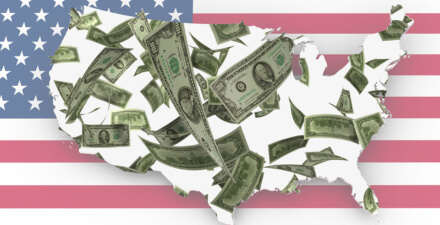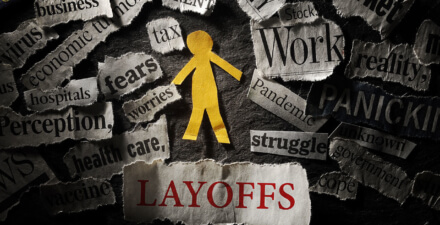The historical legacy of racial and ethnic discrimination in the United States continues to determine economic outcomes today. Far too often one’s race and ethnicity shape the ways in which one’s characteristics are valued by employers and the economy. Intentional policies have identified winners and losers based on their racial and ethnic background, such as redlining and the lack of enforcement of anti-discrimination laws. Equitable Growth elevates a racial and ethnic lens on the U.S. economy to draw attention to persistent disparate outcomes by race and ethnicity.
Featured work
Tariff costs impact industries with mostly White, male, and noncitizen workers
November 4, 2025
November 4, 2025
In Conversation with Omari Swinton
September 24, 2025
September 24, 2025
Changing Opportunity: Sociological Mechanisms Underlying Growing Class Gaps and Shrinking Race Gaps in Economic Mobility
October 9, 2025
October 9, 2025
New research documents the high cost of residential racial segregation in Northern cities of the United States
May 9, 2022
May 9, 2022
Wealth of two nations: The U.S. racial wealth gap, 1860-2020
October 5, 2022
October 5, 2022
Stratification economics: What it is and how it advances our understanding of inequality
February 28, 2022
February 28, 2022
Explore Content in Race & Ethnicity502
Elevating economic research on racist violence and exclusion in the United States
June 5, 2020
June 5, 2020
Coronavirus recession: How to get the U.S. economy back on track
May 26, 2020
May 26, 2020
Green stimulus, not dirty bailouts, is the smart investment strategy during the coronavirus recession
May 18, 2020
May 18, 2020
For an equitable recovery, federal relief to deal with the coronavirus recession must be transparent to the U.S. public
May 13, 2020
May 13, 2020
Coronavirus recession deepens U.S. job losses in April especially among low-wage workers and women
May 8, 2020
May 8, 2020
More resilient small U.S. restaurants and their workers can exit the coronavirus recession and sustain an equitable economic recovery
May 7, 2020
May 7, 2020
New congressional reports underscore structural inequalities driving U.S. racial disparities in coronavirus infections and COVID-19 deaths
May 4, 2020
May 4, 2020
Expert Focus: Equity and Well-Being During the Coronavirus Recession
April 30, 2020
April 30, 2020
Explore the Equitable Growth network of experts around the country and get answers to today's most pressing questions!
















